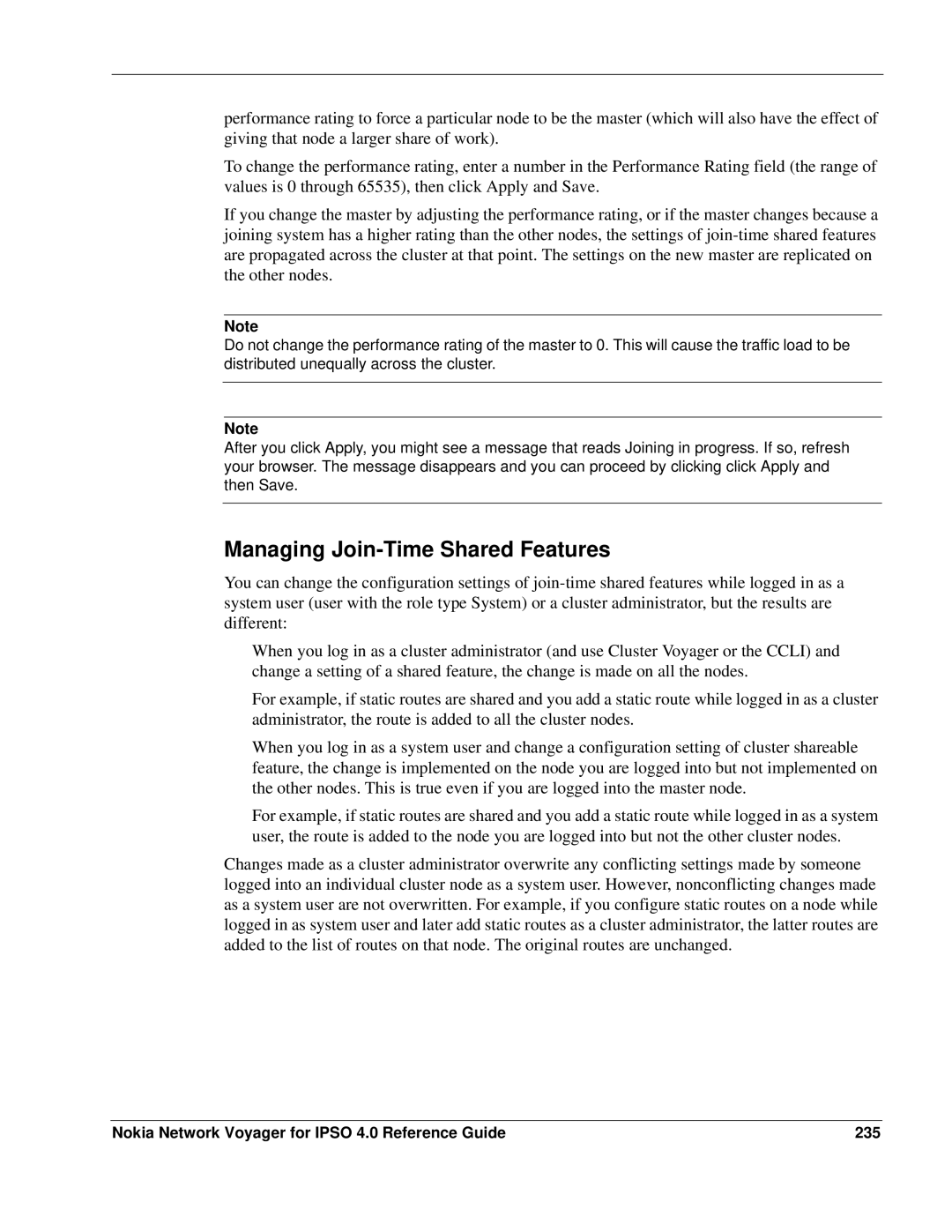
performance rating to force a particular node to be the master (which will also have the effect of giving that node a larger share of work).
To change the performance rating, enter a number in the Performance Rating field (the range of values is 0 through 65535), then click Apply and Save.
If you change the master by adjusting the performance rating, or if the master changes because a joining system has a higher rating than the other nodes, the settings of
Note
Do not change the performance rating of the master to 0. This will cause the traffic load to be distributed unequally across the cluster.
Note
After you click Apply, you might see a message that reads Joining in progress. If so, refresh your browser. The message disappears and you can proceed by clicking click Apply and then Save.
Managing Join-Time Shared Features
You can change the configuration settings of
When you log in as a cluster administrator (and use Cluster Voyager or the CCLI) and change a setting of a shared feature, the change is made on all the nodes.
For example, if static routes are shared and you add a static route while logged in as a cluster administrator, the route is added to all the cluster nodes.
When you log in as a system user and change a configuration setting of cluster shareable feature, the change is implemented on the node you are logged into but not implemented on the other nodes. This is true even if you are logged into the master node.
For example, if static routes are shared and you add a static route while logged in as a system user, the route is added to the node you are logged into but not the other cluster nodes.
Changes made as a cluster administrator overwrite any conflicting settings made by someone logged into an individual cluster node as a system user. However, nonconflicting changes made as a system user are not overwritten. For example, if you configure static routes on a node while logged in as system user and later add static routes as a cluster administrator, the latter routes are added to the list of routes on that node. The original routes are unchanged.
Nokia Network Voyager for IPSO 4.0 Reference Guide | 235 |
